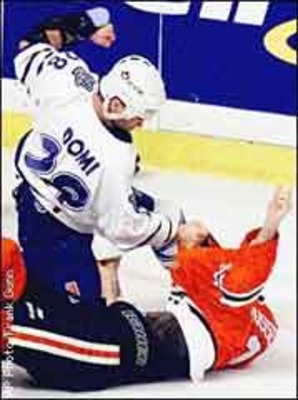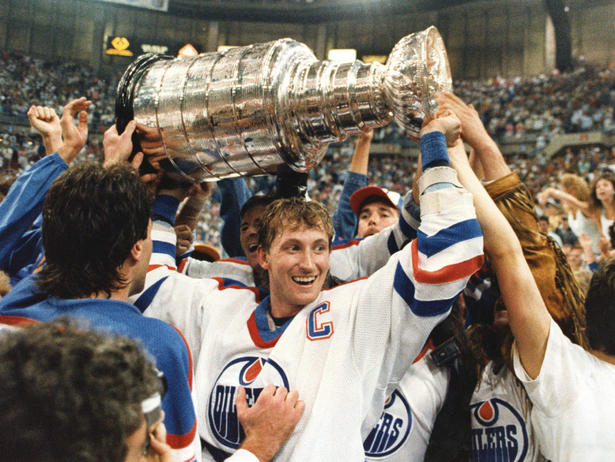Bless the enforcers
It’s NHL playoff time and many of us have hockey on the mind. Whether it’s “skating to where the puck is going to be” or “respect the game, love the grind”, hockey analogies are almost as popular in business as they are in Canadian politics.
The other day I heard a friend describing their role within their company to a co-worker, they said something roughly along the lines of, “I’m the person that deals with this shit so you don’t have to – I’m like the player on the team that handles the players on the other team so you can focus on scoring!” I don’t know if this friend is big into sports, but they were basically describing an enforcer in hockey.
Team sports are good preparation for working in a group during other facets of life. In sports roles just seem to emerge, sometimes based on personality, sometimes based on skill, sometimes both. Some people just have a state of mind set on scoring goals, and other people want to be the hero by stopping the other team from scoring. Even the sports themselves tend to attract different people and develop different skills. The roles in basketball are much more fluid and dynamic than football.
Team captains, scoring leaders, and heroic goaltenders tend to receive a lot of glory and admiration, and so they should. Even if you’ve got the natural talent required, it’s still hard as all hell to do what they do. These team leaders are often virtuous and high-minded. They want to win, badly, but within the constraints of the rules, because to win otherwise would deprive them of a true win. They often succeed by putting a deliberate effort into making everyone around them a better player.
 But sometimes the other team doesn’t play fair. They punch below the belt, they play dirty. They can get away with it too. The ref can’t be looking everywhere all the time. And those same “virtuous qualities” of a team leader are left stunted and ineffective.
But sometimes the other team doesn’t play fair. They punch below the belt, they play dirty. They can get away with it too. The ref can’t be looking everywhere all the time. And those same “virtuous qualities” of a team leader are left stunted and ineffective.
So in a game that is imperfect, the enforcer becomes an unfortunately necessary role. It’s not to say that everything enforcers ever do should be condoned. And it’s not to say that team leaders can’t be their own enforcers – dual threats do exist. I wouldn’t want to mess with Jarome Iginla! But the task of fighting fire with fire, taking the punches and landing some too, so that others may go about their work, is unfortunately often necessary, even if outside the official rulebook.
The role doesn’t get nearly the glory of the team captains and the scoring leaders. They’re “working class” superheros. They get praise for their spirit, but almost never their skill. They get called names like goon. The other teams hate them. They’re the “bad guy”. Often on the 4th line, the enforcer isn’t first in line to hoist the cup should their team win. And the powers that be, wanting a more perfect game, are always changing the rules to try to make their very role obsolete.
Enforcers exist in many other facets of life, and business is one of them. Sometimes the other party doesn’t play fair, and you need those people that are willing to be seen as the bad guy if it means getting the job done. Enforcer tactics and approaches are rarely ever a good first option. I mean just look how many times Worf’s ideas were denied! 😉
But the truth about enforcers is that they are sometimes necessary, and they are coming from a good place – they want their team to win. Bless the enforcers.
